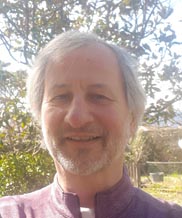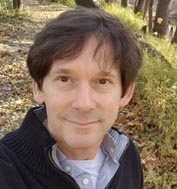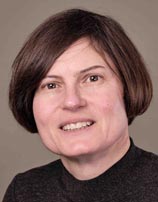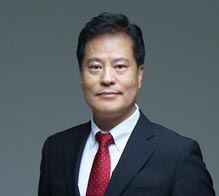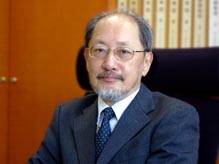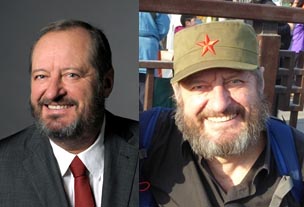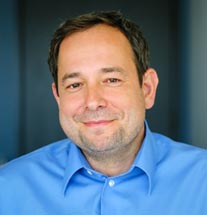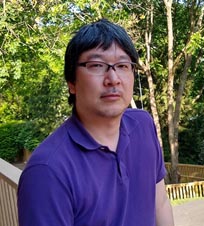 |
ISCApad #298 |
| Friday, April 07, 2023 by Chris Wellekens |
2 ISCA News
| 2-1 | Message from ISCA president Prof. Dr. Sebastian Möller
Dear friends of ISCA,
Following the good news in March regarding the ISCA medalist and the promise of INTERSPEECH 2026 in Sydney, the month of April again brings good news: The Fellows Selection Committee has nominated 8 new ISCA Fellows for their significant contributions to the science and technology of speech communication. You will find the new ISCA Fellows with the citations naming their contributions in the message below. I would like to thank the entire Fellow Selection Committee, headed by Keikichi Hirose, as well as the ISCA Board Coordinator for the fellows program, Phil Green, for organizing a very careful and thoughtful selection process. We hope to be able to congratulate all new ISCA Fellows during the opening ceremony of INTERSPEECH 2023 in Dublin.
Talking about INTERSPEECH 2023, the organizers are currently very busy with the Technical Program, and many of you will have received review requests for papers submitted for our flagship conference. As the number of submissions is very high, I would like to ask all of you to contribute with timely and detailed reviews; this will enable again a very high quality Technical Program. In parallel, the organizing committee is very busy with arranging keynotes, installing the registration system, and taking care of all other conference logistics. Naomi Harte, the General Chair of INTERSPEECH 2023, will provide detailed information in this ‘president’s message’ place in the May ISCApad.
I wish you good start of Spring (for most of us), and a good read (for all) of this ISCApad, as usual nicely compiled by Chris Wellekens.
Sebastian Möller ISCA President
| ||
| 2-2 | URGENT ISCA Board Election Deadline April 26, 2023Thank you to those members who have voted in the 2023 ISCA Board Election. This is a reminder for all other members to VOTE NOW! Voting closes 26 April 2023. There are 12 qualified nominees for 6 vacant seats on the ISCA board. You are invited to vote for any number of candidates from 0 to 6. Each vote has equal weight. Please visit http://www.isca-speech.org/iscavote to cast your vote using your ISCA userID and password. After voting, you can still revise your vote at any time before 27 April 2023. Only current ISCA members are eligible to vote. Thank you for your participation! Best regards, ISCA Board
| ||
| 2-3 | 2023 ISCA FELLOWS
Is it is common practice since several years, the ISCA Fellows Selection Committee has worked over the last months to seek out nominations and endorsements for this year’s ISCA Fellows selection. The ISCA Fellows Selection Committee maintains a rigorous process of collecting and evaluating all nominations (more details are found on the ISCA webpage at: https://www.isca-speech.org/iscaweb/index.php/honors/fellows). After extensive evaluations and reviews, the following eight distinguished researchers will be elevated to the status of ISCA Fellow for 2023. Their citations as well as affiliations are highlighted below. Please join us in congratulating these well deserving colleagues for their research contributions to the field of speech communication and technology! All will be recognized at INTERSPEECH 2023 in Dublin, Ireland, in August.
Phil Green (ISCA Fellows Board Member) Sebastian Möller (ISCA President)
| ||
| 2-4 | Call for ISCA conferences Reviewers
| ||
| 2-5 | ELRA/ISCA Special Interest Group: Under-resourced Languages (SIGUL) ELRA/ISCA Special Interest Group: Under-resourced Languages (SIGUL) Created in April 2017, SIGUL is a joint Special Interest Group of the European Language Resources Association (ELRA) and of the International Speech Communication Association (ISCA). This year, SIGUL enters the fifth year and now has more than 300 members. The SIGUL Board is elected every two years, and last year SIGUL had a new Board officer: Chair and ISCA liaison representative: Sakriani Sakti (JAIST, Japan) Co-chair and ELRA liaison representative: Claudia Soria (CNR-ILC, Italy) Secretary: Maite Melero (Barcelona Supercomputing Center, Spain)
SIGUL has organized various events, including the Spoken Language Technologies for Under-resourced languages (SLTU) Workshop Series, which has been organized since 2008, and Collaboration and Computing for Under-Resourced Languages (CCURL), which has been organized as LREC Workshop since 2014. From this year, the tradition of CCURL-SLTU will be united into one SIGUL Workshop and planned to be held as a Satellite Workshop of LREC or INTERSPEECH. The 1st Annual Meeting of the ELRA/ISCA Special Interest Group on Under-Resourced Languages (SIGUL 2022) will be held as Satellite Workshop of LREC 2022, Marseille (FR), 24-25 June 2022. The SIGUL venue will provide a forum for the presentation of cutting-edge research in NLP/SLP for under-resourced languages to both academic and industry researchers, and also offer a venue where researchers in different disciplines and from varied backgrounds can fruitfully explore new areas of intellectual and practical development while honoring their common interest of sustaining less-resourced languages. Topics include but are not limited to:
We also invite position papers on methodological, ethical, or institutional issues. Important Dates:
More details can be found on the workshop web page: https://sigul-2022.ilc.cnr.it/
SIGUL Board Sakriani Sakti Claudia Soria Maite Melero
| ||
| 2-6 | ISCA Language SIGS ISCA supports speech communication research activities in various languages. The individual languages have equal interest, but they may involve have different technical or scientific problems. For example, some languages are tonal, while others are not; Some languages have only one writing system, while others have several. In the ISCA community, we have 6 language Special Interest Groups (SIGs) for Chinese, French, Italian, Iberian, Indian, and Russian. Each SIG is organised by researchers who speak the language of interest as L1 and others who have a technical or scientific interest in the language. Each SIG sponsors domestic and international research activities, and representative members of the SIGs attend a Lang SIG meeting every year during the INTERSPEECH conference. In this meeting, recent activities of each SIG are reported, and new ideas are exchanged. We also review what ISCA can do for the SIGs and what the SIGs can do for ISCA. Each SIG has its own web page, and you can visit the pages here. Prof. Nobuaki MINEMATSU The University of Tokyo Japan
| ||
| 2-7 | ISCA Special Interest Group (SIG) 'Spoken Language Translation'
ISCA SIG “Spoken Language Translation” Aims. The SIG SLT covers all aspects of spoken language translation — simultaneous translation and interpretation, speech dubbing, speech-to-text translation, speech-to-speech translation, cross-lingual communication including paralinguistic, emotional or multimodal information, and related areas SIG SLT will (a) provide members of ISCA with a special interest in spoken language translation and its related areas with a means of exchanging news of recent research developments and other matters of interest in spoken language translation; (b) organize challenges and evaluation campaigns; (c) sponsor and organize the International Conference on Spoken Language Translation (IWSLT), meetings, satellites, and tutorial workshops in spoken language translation, operating within the framework of ISCA's by-laws for SIGs; and (d) make available open-source code and data resources, best practices and tools, and evaluation metrics relevant to spoken language translation.
Motivation. Recent interest in speech translation and simultaneous translation by machine has been growing explosively, due to continued performance advances and a growing international need for simultaneous translation and interpretation, speech dubbing, speech-to-text translation, speech-to-speech translation, cross-lingual communication including paralinguistic, emotional or multimodal information, and related areas. The under-covered elements in the current research are, for instance, incremental simultaneous speech-to-speech translation, paralinguistic translation, speaking style translation across languages. The proposed SIG will be organized by the members who are interested in spoken language translation/interpretation from various related areas such as ASR, TTS, and MT. SIG SLT emerged from over two decades of organizing the International Conference on Spoken Language Translation (IWSLT) and its predecessor C-Star, scaling operations in response to significant growth in the field. The organizers of IWSLT and partners believe it is now time to join with ISCA by creating an ISCA SIG. IWSLT has a 15-year track record of profitability; it runs the premier benchmarking campaign on spoken language translation annually accompanied by an international scientific conference to present and discuss results.
| ||
| 2-8 | ISCA-PEDRAC: a new service of ISCA. ISCA-PECRAC (Postdoc & Early Career Researcher Advisory Committee) Annual Gathering aims to provide an opportunity for postdoc & early career researchers to meet and communicate at INTERSPEECH. In the framework of ISCA-PECRAC, we would like:
Contacts: Yaru Wu (yaru.wu@sorbonne-nouvelle.fr) Berrak Sisman (berrak_sisman@sutd.edu.sg)
| ||
| 2-9 | ISCA social networks We encourage all members tokeep contact with ISCA via our social nets. Also you will bde kept informed about all events on our website. This is particularly important in this time where due to the coronavirus, many modifications may be brought to the conference.
ISCA Facebook : https://www.facebook.com/iscaspeech/ ISCA Twitter : https://twitter.com/ISCAFOX ISCA SAC Student Facebook : https://www.facebook.com/groups/98794207409/ website : www.isca-speech.org
| ||
| 2-10 | Women in Speech Research ISCA is committed to supporting diversity in speech communication, and celebrating speech
| ||
| 2-11 | Prosody slides and lecture videos @ ACL 2021 Dear Speech Prosody SIG Members,
We are pleased to announce the open-source release of our tutorial on prosody, originally presented at ACL 2021. This includes about 400 powerpoint slides, with notes, downloadable from https://nigelward.com/prosody/ , and 29 video lectures based on this content, totaling about 4 hours, hosted at Youtube at https://www.youtube.com/playlist?list=PLCFybA0SDVTjbQQRxJ1p2NnirCw_tk_z7 .
These we hope will be useful for - professors seeking slides to use for general-audiences talks - graduate students wanting to learn about aspects of prosody not taught at their institutions - engineers, clinicians and others seeking an overview of the field or some specific knowledge
Comments are welcome!
Gina-Anne Levow, Nigel G. Ward
Nigel Ward, Professor of Computer Science, University of Texas at El Paso CCSB 3.0408, +1-915-747-6827 https://www.cs.utep.edu/nigel/
|

